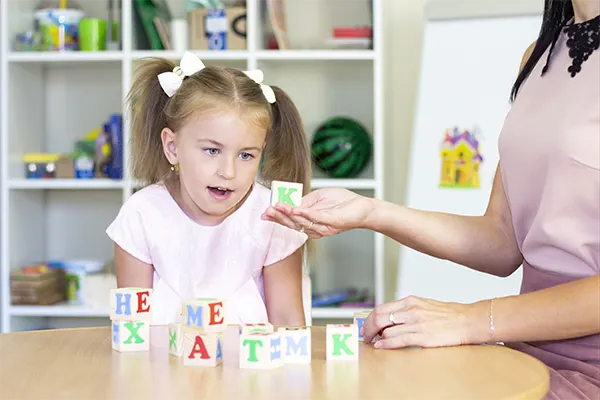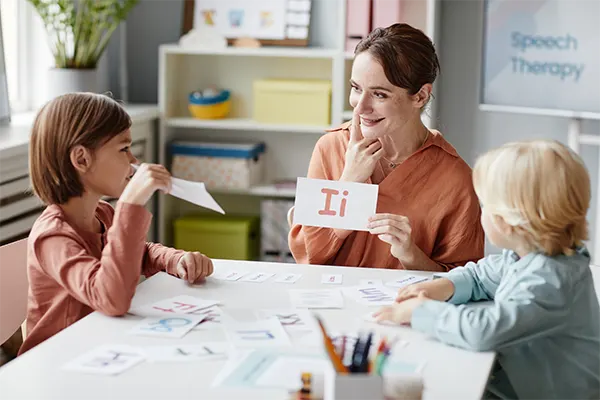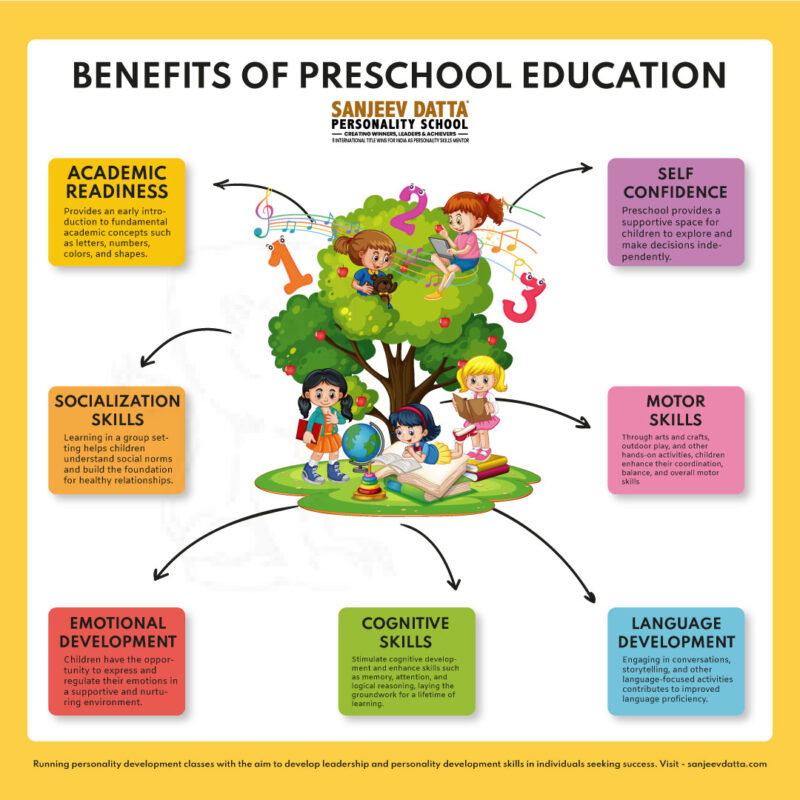In a world where effective communication is paramount, speech therapy for kids plays a pivotal role in ensuring children develop the necessary skills to express themselves confidently and coherently. Whether addressing articulation challenges, language disorders, or social communication difficulties, speech therapy provides a tailored approach to nurturing a child’s communicative abilities. This article delves into valuable tips for speech therapy for kids, offering insights for parents, caregivers, and educators keen on supporting a child’s journey to improved speech and language skills.
Understanding the Importance of Speech Therapy for Kids:

Before delving into specific tips, it’s crucial to recognize why speech therapy is vital for kids. Effective communication is a cornerstone of success in various aspects of life, from academic achievements to social interactions. Speech therapy addresses a spectrum of challenges, including speech sound disorders, language delays, stuttering, and social communication difficulties.
Early intervention is key to mitigating potential setbacks in a child’s development. The formative years provide an opportunity to shape and enhance communication skills, preventing academic struggles, social isolation, and potential emotional stress. As parents, caregivers, and educators, understanding the significance of speech therapy lays the groundwork for proactive support.
Valuable Tips for Effective Speech Therapy:
- Early Identification and Intervention:

The adage “prevention is better than cure” holds in the realm of speech therapy. Early identification of speech and language challenges allows for prompt intervention, significantly improving outcomes. Parents and caregivers should stay vigilant for signs of speech delays, such as difficulty pronouncing words, limited vocabulary, or struggles with comprehension. Seeking professional assessment at the earliest signs of concern ensures that therapy can commence promptly, offering the child the best chance for success.
2. Establish Clear and Achievable Goals:

Goal-setting is a fundamental aspect of any therapeutic process. Collaborate with the speech-language pathologist (SLP) to establish clear, measurable, and achievable goals for the child. These goals should be tailored to the child’s specific needs, considering their age, developmental stage, and the nature of their speech or language challenges. Regularly revisit and update these goals to reflect the child’s progress, providing a roadmap for their speech therapy journey. Invest in your child’s success! Our dynamic program for personality development for kids that nurtures essential life skills, preparing them for a confident and thriving future.
3. Consistent and Engaging Practice:

Consistency is key to successful speech therapy outcomes. Encourage the consistent practice of speech exercises at home to reinforce what the child learns during therapy sessions. Make practice engaging and age-appropriate by incorporating games, storytelling, and interactive activities. Consistent and enjoyable practice enhances skill retention and fosters a positive attitude toward speech therapy.

4. Incorporate Technology and Speech Therapy Apps:

Leverage the power of technology to enhance the speech therapy experience. Numerous speech therapy apps cater to different age groups and address various speech and language challenges. These apps make learning interactive and enjoyable for kids, turning therapy sessions into engaging activities that seamlessly integrate into their daily routines.
Visit: why educational toys are important
5. Foster a Supportive Environment:

Creating a supportive environment is crucial for a child’s progress in speech therapy. Encourage open communication, patience, and understanding. Praise the child for their efforts, celebrate small victories, and provide positive reinforcement. A supportive atmosphere at home and in educational settings contributes significantly to a child’s confidence and motivation to overcome speech challenges.
6. Collaborate with Educators and Caregivers:

Effective communication and collaboration among parents, caregivers, educators, and speech-language pathologists are essential for comprehensive support. Share information about the child’s progress, discuss strategies, and align efforts to ensure consistency in addressing speech and language challenges across different environments. A unified approach maximizes the impact of speech therapy on a child’s overall development.
7. Encourage Natural Communication Settings:

Speech therapy should extend beyond the therapy room and into natural settings. Encourage the child to practice their speech and language skills in real-life situations, such as at the dinner table, during playdates, or while engaging in everyday activities. The ability to apply learned skills in various contexts enhances the generalization of these skills, making them more functional in the child’s daily life. Empower your child’s growth journey with our expert-guided personality development training sessions, designed to enhance self-esteem, emotional intelligence, and overall well-being.
8. Stay Informed and Involved:

Stay informed about the child’s therapy progress, and actively participate in the process. Regularly communicate with the speech-language pathologist to understand the strategies employed and to seek guidance on how to support the child at home and in other environments. An informed and involved support system contributes significantly to a child’s success in speech therapy.
Visit: pillars of gentle parenting
Conclusion:
In conclusion, speech therapy for kids is a transformative journey that requires dedication, collaboration, and a proactive approach from parents, caregivers, educators, and professionals. Early identification, clear goal-setting, consistent and engaging practice, technology integration, a supportive environment, collaboration, natural communication settings, and staying informed are integral components of effective speech therapy.
As we navigate the landscape of childhood development, let’s remember the power of speech therapy in unlocking a child’s potential. By implementing these tips for speech therapy for kids and fostering a holistic approach to speech therapy, we empower children to communicate effectively, build confidence, and overcome speech and language challenges. The journey may present its share of challenges, but with a concerted effort and the right strategies, every child can thrive in their speech and communication abilities.
Why Sanjeev Datta Personality School?
- Interview Training
- Leadership
- Presentation Training
- Social Boldness
- Dressing Etiquette
- Office Etiquette
- Communication Skills
- English Speaking
- Anger Management
- Time Management
- Team Building
- Performance Enhancer
- Soft Skills
- Goal Setting
- Career Counselling
- Student Subject Choice Counselling
- Listening Skills
- Video Presentation
- Meditation
For more details, contact us now!


